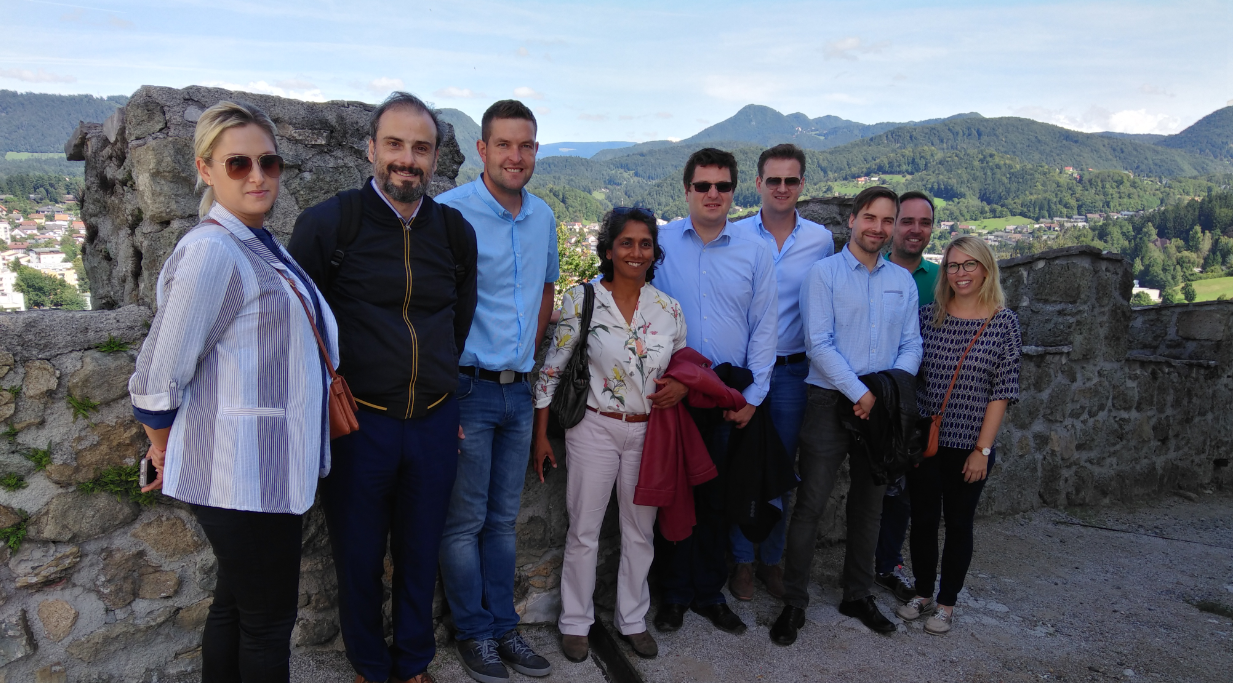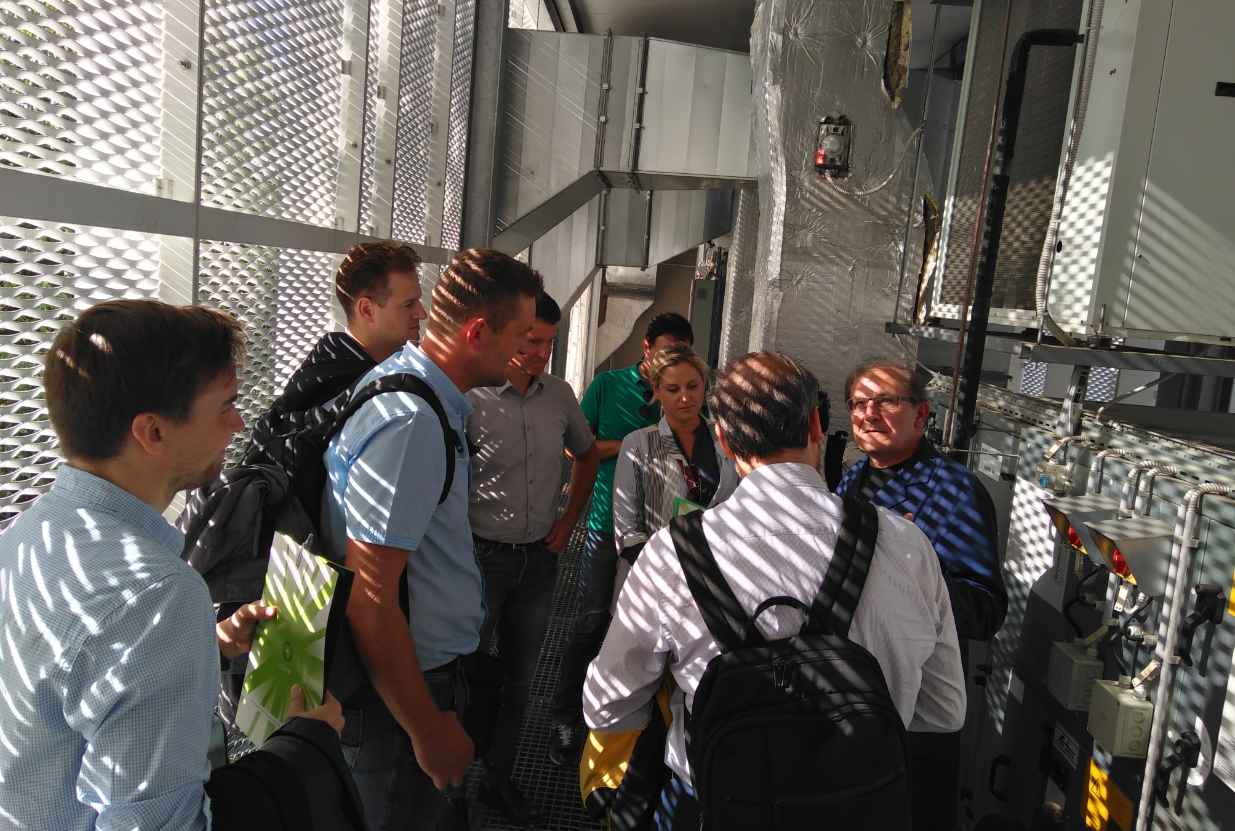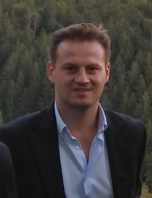KSSENA mentoring in PROSPECT Learning Cycle 3
KSSENA, the regional Energy Agency of Savinjska, Šleska and Koroška is sharing its expertise on financing and implementing successful energy performance contracting (EPC) projects in public buildings with the Municipality of Siemiatycze (Poland), Municipality of Bydgoszcz (Poland), Municipality of Egaleo (Greece), Municipality of Loures (Portugal), Municipality of Matosinhos (Portugal) and the Canton of Sarajevo (Bosnia & Herzegovina). They are participating in the 3rd Cycle of the PROSPECT Learning Programme, constituting the 1st Group for Public Buildings. The peer learning activities will focus on Energy Performance Contracting (EPC) in public buildings. +Mentors' Corner
During the Step 1, on the 29th of May 2019 the team met online. The Energy Agency of Savinjska, Šleska and Koroška Region presented projects regarding the Energy renovation of 8 public buildings in Municipality of Celje, Energy renovation of 8 public buildings in Koroška and Energy renovation of 8 public buildings in Municipality of Velenje (Renovation of Public lighting in Municipality of Velenje).
During the Step 2 of the Learning Programme and on the 10th of July 2019 the team met again online. The Mentees presented projects and ideas related to the role of EPC in public buildings. Specific needs to be addressed during the visit by the mentor were discussed as well.
EPC for public buildings: Sharing the best practice example of the Energy Agency of Savinjska, Šleska and Koroška Region (KSSENA), Slovenia
On 10 - 11 September 2019, a two-day site visit (Step 3 of the Learning Programme) was organised in the municipality of Velenje. The main objective was to deepen the participants’ know-how of EPC-related topics and to create an environment for dialogue and exchange on the practical implementation of refurbishment in public buildings and EPC.

Image: Agnieszka Koc from the Municipality of Siemiatycze (Poland), Dimitris Tzempelikos from the Municipality of Egaleo (Greece), Primož Rotovnik from KSSENA (Slovenia), Iolanda Sousa from the Municipality of Loures (Portugal), Nejc Jurko from KSSENA (Slovenia), Vedad Viteskic from the Municipality of Sarajevo (Bosnia and Herzegovina), Marcin Napierała from the Municipality of Bydgoszcz (Poland), Luís Magalhães from the Municipality of Matosinhos (Portugal) and Anja Gahleitner from the OÖ Energiesparverband (Austria)
Nejc Jurko, together with his colleagues Primož Rotovnik and Sašo Mozgan, presented the key features of energy performance contracting. Further topics included using energy audits as a reference document for municipalities interested in EPC, meta energy data collection, appraisals of possible technical solutions and EU funds for energy renovation.During the two days, different sites were visited such as the renovated Health Centre of Velenje (6 buildings, 1.1 Mio. Euro investment, cost savings of 17,000 Euro/year), the Kindergarten Živ Žav (262,000 Euro investment, 31 % savings for heating) and the cultural heritage building in Celski Dom (1,964,121 Euro investment, 50 % energy savings).
The municipal swimming pool in Velenje is currently undergoing deep renovation. It was one of the best practice examples showed and discussed during the two-day visit. The main energy efficiency measures being implemented through this EPC project include the thermal insulation of the building envelope (30 cm) and roof, a new heat pump, a new lighting system, a ventilation system with heat recovery and floor heating. The building is connected to the Šalek Valley district heating system. A total of 964,000 Euro are being invested. The participants received a guided tour through the whole complex with a detailed presentation of the different measures. The project will lead to 16 % electricity savings, 49 % heat savings and costs savings of 19.500 Euro/year.

Overall, participants benefited from sharing internal know-how (among each other and with the mentor), from hands-on experience during the site-visits and from external inputs provided by facility managers.

"Energy sustainable plans lead us to collaboration. Collaboration leads us to understanding the necessity for change in sustainable management. Changes lead us to a common vision for our city and desired outcome.", Vedad Viteskic, City of Sarajevo (Bosnia and Herzegovina)

"Visiting Slovenian cities where so many public buildings already benefit from deep energy retrofitting through a combination of EPC, national and European funds increased my enthusiasm for implementing energy efficiency measures in our municipal buildings. KSSENA professionals have a keen understanding of the challenges that needed to be addressed and are well versed in both the technical and financial solutions that might be replicable to some of our projects.", Iolanda Sousa, Municipality of Loures (Portugal)

The visit in Velenje and Celje proved to us the success story of an EPC", Dimitris Tzempelikos, Municipality of Egaleo (Greece)

"This meeting boosted creativity",Agnieszka Koc, Municipality of Siemiatycze (Poland)
Replication/Transferability
The 4th and last step of the Programme took place on the 3rd of December 2019 and included an online session dedicated to the assessment and evaluation of the peer learning activities.
Detailed action plans were submitted by the mentees, in light of the new-acquired knowledge gained from the mentor. Conditions for success and key parameters that could affect negatively the plans were also identified, along with a benchmark survey that encapsulated all the outcomes of the learning group.
Rethinking the financing scheme:
Main impressions and understanding about the financing scheme:
A very complex management system that not only is related to technical
and financial approach but interacts with political moments that is not
serving for a few stakeholders but creates opportunities for a wider group of
stakeholders.
innovative financing for capital improvement which allows funding energy
upgrades from cost reductions. Under an EPC arrangement an external
organisation (ESCO) implements a project to deliver energy efficiency, or a
renewable energy project, and uses the stream of income from the cost
savings, or the renewable energy produced, to repay the costs of the
project, including the costs of the investment.
In fact, the use of EPC has a lot of potential when we want to combine deep
rehabilitation with associated energy savings, combining little direct public
investment.
Key project implementation drivers:
The financial risk is practically assumed by ESCO, as well as the control of
technical solutions and maintenance. The greater the savings generated by
the technical options to be implemented by the ESCOs, the greater the
profitability of the solution and, as a side effect, the greater the efficiency of
the rehabilitation or improvement of the property/building.
The benefits of EPC are summarized in the simplification of procedures andthe rapid implementation of energy-saving actions.
Reducing energy use by achieving savings through an external company
which utilizes the stream of income from energy savings measures.
Key project implementation barriers:
- As major weaknesses, the time of preparation and maturation of these processes, the tight legislation regarding public procurement, as well as the lack of responses from national partners in the area, available to assess the risks and take those risks.
- The main weaknesses of EPC, in the Greek case, focus on the lack of relevant legislation but also on the immaturity of the political leadership to implement this financial tool.
- Public procurement requirements.
Key steps to set up or develop the financing scheme:
- The implementation of EPC in the public sector depends essentially on political will. The difficulty of defining frontiers of action and respective responsibilities, essentially technical and financial.
- Simplification of legislation
- Setting up a workgroup consisting of specialists from different departments, budget planning
- Preparation of necessary documents for e.g. energy audits
- Define the project details and boundaries very carefully.

